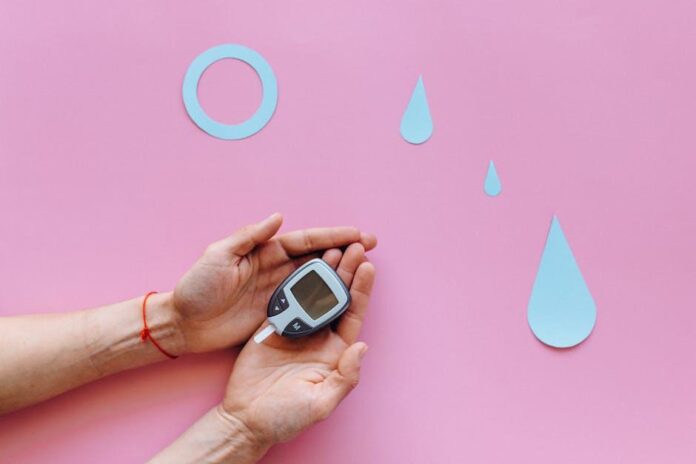
Maintaining healthy blood sugar levels is essential for overall health and well-being. When blood sugar levels are too high, it can lead to various health issues such as diabetes, heart disease, and nerve damage. Luckily, there are many simple ways to lower your blood sugar levels and keep them in check. In this article, we will discuss 10 easy and effective ways to lower your blood sugar levels naturally.
1. Increase your physical activity
One of the best ways to lower your blood sugar levels is to increase your physical activity. Regular exercise can help lower blood sugar levels by increasing insulin sensitivity and helping your body use insulin more effectively. Aim for at least 30 minutes of moderate-intensity exercise most days of the week, such as walking, cycling, or swimming.
2. Eat a healthy diet
Eating a balanced diet rich in whole foods can help lower your blood sugar levels. Avoid sugary foods and drinks, refined carbohydrates, and processed foods, as these can cause spikes in blood sugar levels. Instead, focus on eating plenty of vegetables, fruits, whole grains, lean protein, and healthy fats. Foods high in fiber, such as beans, legumes, and whole grains, can help stabilize blood sugar levels and prevent spikes.
3. Stay hydrated
Drinking enough water is important for maintaining healthy blood sugar levels. Dehydration can lead to higher blood sugar levels, so be sure to drink plenty of water throughout the day. Aim to drink at least 8-10 glasses of water daily, and more if you are physically active or in hot weather.
4. Get enough sleep
Getting enough sleep is crucial for regulating blood sugar levels. Lack of sleep can lead to hormonal imbalances that can affect blood sugar levels and insulin sensitivity. Aim for 7-9 hours of quality sleep each night to help keep your blood sugar levels in check.
5. Manage stress
Chronic stress can lead to higher blood sugar levels, so it’s important to find ways to manage stress effectively. Practice relaxation techniques such as deep breathing, meditation, yoga, or tai chi to help reduce stress levels and improve blood sugar control.
6. Monitor your blood sugar levels
Monitoring your blood sugar levels regularly can help you identify patterns and make necessary adjustments to keep your levels in a healthy range. Talk to your healthcare provider about the best way to monitor your blood sugar levels, whether it’s through at-home testing or regular visits to a healthcare professional.
7. Limit alcohol consumption
Alcohol can cause blood sugar levels to spike, especially if consumed in large amounts or on an empty stomach. Limit your alcohol consumption and be sure to drink in moderation. Opt for lower-sugar options such as light beer or wine, and avoid sugary drinks and cocktails.
8. Lose weight if necessary
If you are overweight or obese, losing weight can help lower your blood sugar levels and improve insulin sensitivity. Even a small amount of weight loss can make a big difference, so set realistic goals and make healthy lifestyle changes to support your weight loss efforts.
9. Eat smaller, frequent meals
Eating smaller, more frequent meals throughout the day can help keep blood sugar levels stable and prevent spikes. Aim to eat every 3-4 hours and include a balance of carbohydrates, protein, and healthy fats in each meal and snack.
10. Consider natural supplements
Some natural supplements have been shown to help lower blood sugar levels. Talk to your healthcare provider about the potential benefits of supplements such as cinnamon, chromium, alpha-lipoic acid, or berberine. Keep in mind that supplements should not replace a healthy diet and lifestyle but can be used as part of a comprehensive approach to managing blood sugar levels.
In conclusion, there are many simple ways to lower your blood sugar levels naturally. By incorporating these 10 tips into your daily routine, you can help keep your blood sugar levels in check and reduce your risk of developing chronic health conditions. Remember to always consult with your healthcare provider before making any significant changes to your diet or lifestyle, especially if you have a medical condition or are taking medication. With the right habits and support, you can take control of your blood sugar levels and improve your overall health and well-being.

















